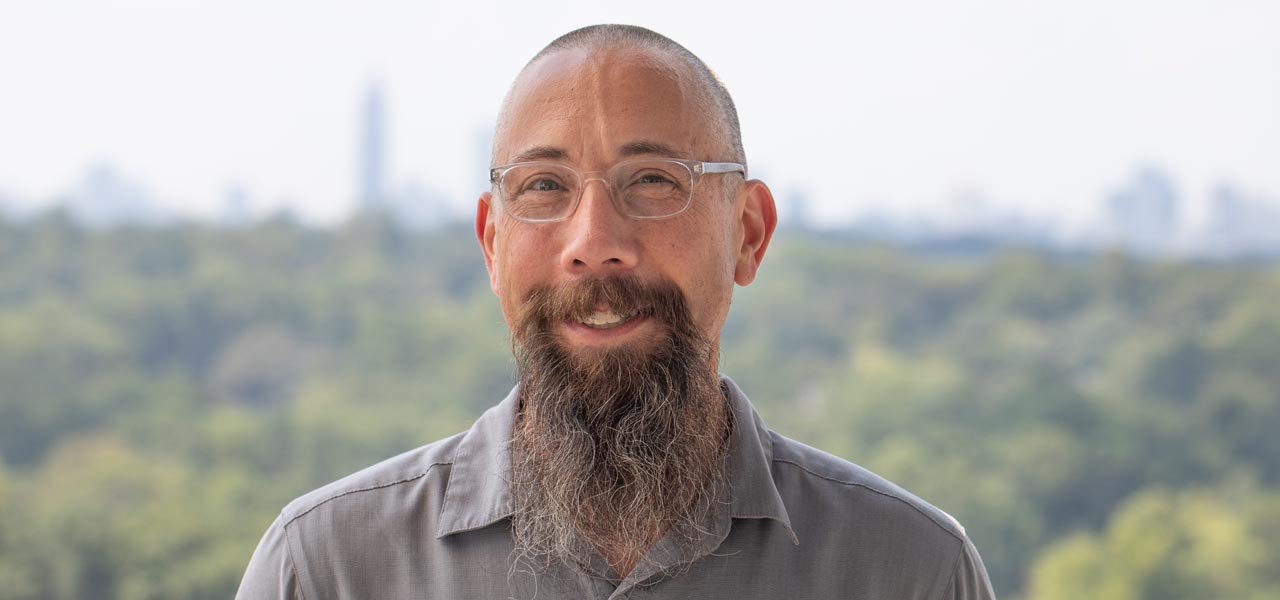
Associate Professor, Department of Epidemiology
Director of Emory Maternal and Child Health Center of Excellence
Co-investigator for the RISE Education Core
“I learn so much from the students...they see or imagine things in ways that I don’t always see or imagine.”
Michael Kramer spends a lot of time thinking about maps. Through his spatial analysis work, he visualizes connections that may not always be obvious and makes it understandable through mapping, whether the topic be the effects of slavery on cardiovascular health in Black Americans in specific geographic regions; the racial, health, and economic implications of cityhood; depicting infant mortality by geographic region; or residential racial segregation as a driver of racial disparities and preterm birth.
Kramer is a social epidemiologist whose areas of interest can largely fit under the umbrellas of the social determinants of health, maternal and child health, and spatial patterns of populations and population health. When you’re looking to unravel the complicated, established social, economic, racial, and geographic drivers of health, it can be challenging to find a starting point.
“The problems we’re facing didn’t start yesterday, and the solutions probably aren’t going to be completed by tomorrow, but that doesn’t mean that either there isn’t a role for incremental change, or that there isn’t a role for critical thinking about fundamental problems, so we need to engage in both,” says Kramer. “What I love about public health is that it can be about those things. We can work within the system, but there’s also room for big, aspirational thinking.”
Kramer has always been interested in helping others and making a tangible difference in the world. Growing up in eastern Kentucky, his interest in social justice began early, as he witnessed extreme poverty and limited health services in the region. After college, while he was trying to figure out what he wanted to do, a friend suggested becoming a clinician and working in rural areas.
So, Kramer found himself in the physician assistant program at Emory, then moving out to do work with the Navajo Nation in Arizona. Working in an emergency room in a small hospital providing primary care and emergency services, he was seeing patients and doing important, impactful work. But often, he felt like he was putting band-aids on problems that had larger social implications.
“I was seeing so many issues that were preventable and that people were dying from that had that population piece to it: things like intimate partner violence, end-stage diabetes, and uncontrolled hypertension,” he recalls.
After meeting an epidemiologist and learning a bit about the field of population science, Kramer pivoted to his current field, which has allowed him to focus on the areas where he’s most interested and sees substantial need. Right now, he’s working with March of Dimes to develop a mapping tool that can depict infant mortality by geographic region, which will be useful to March of Dimes staff, health care providers, and can help inform public policy. He’s also engaged with a pilot project that looks at whether the microbiome predicts preterm birth.
“I’m interested in this idea of the geomicrobiome, and whether there is kind of a geography of women’s microbiomes... if we would see patterns of microbiomes that could be indicative of social networks like sexual networks, or indicative of environments like accessibility of foods or exposure to toxins.”
In addition to his research, Kramer also derives satisfaction and inspiration from teaching. “Students are consistently energetic, idealistic, and smart,” he says. His teaching was nationally recognized by the Association for Teachers of Maternal and Child Health in 2015 when he received the Lacey Academic Leadership Award.
“I learn so much from the students, and that can happen in lots of ways. It happens in very concrete ways, they go out and just discover stuff that I didn’t know about. That actually happens all the time and is so exciting when it does. But also, they see or imagine things in ways that I don’t always see or imagine. Sometimes I feel like there’s a way we both can kind of evolve, and sometimes I just feel purely like that was a blessing.”

